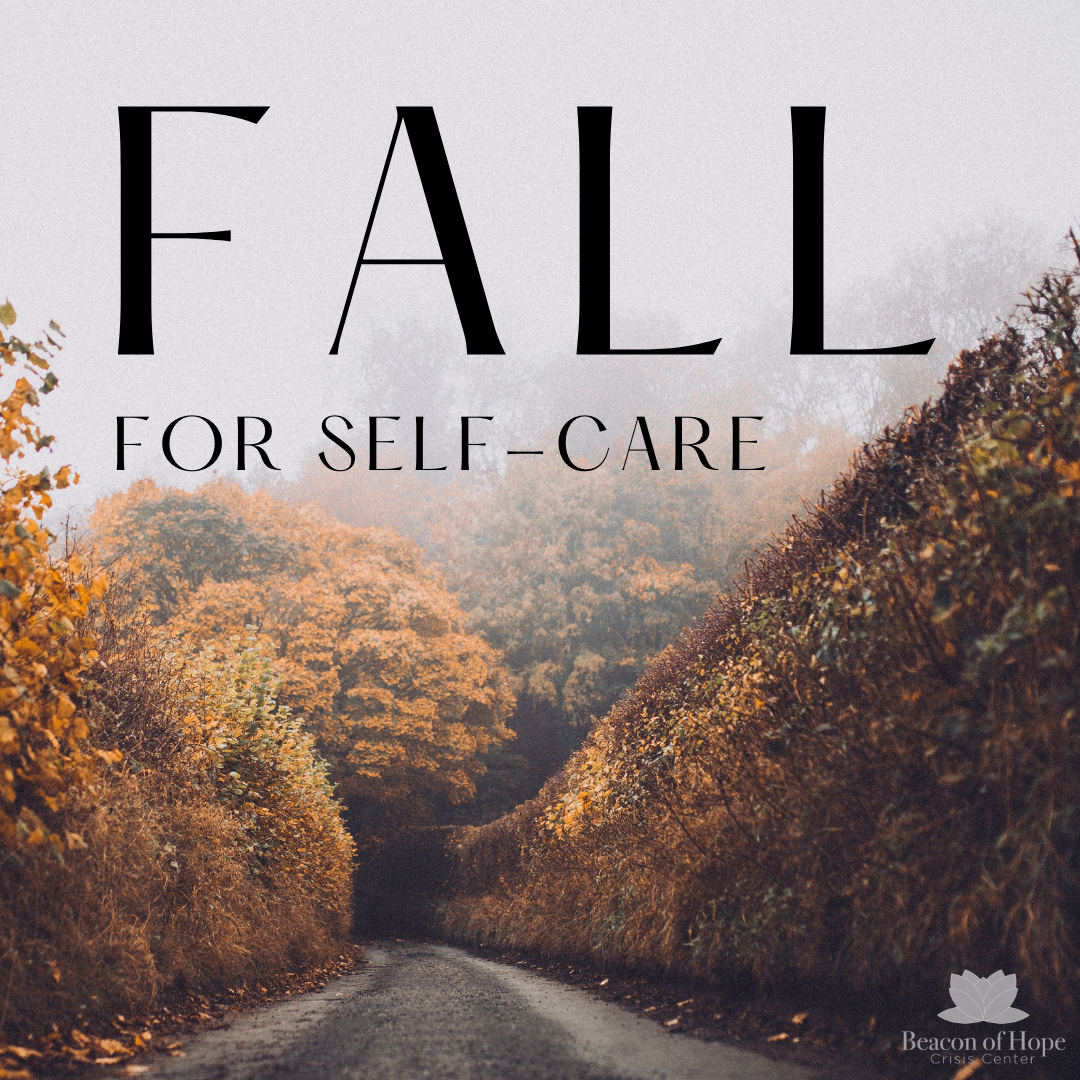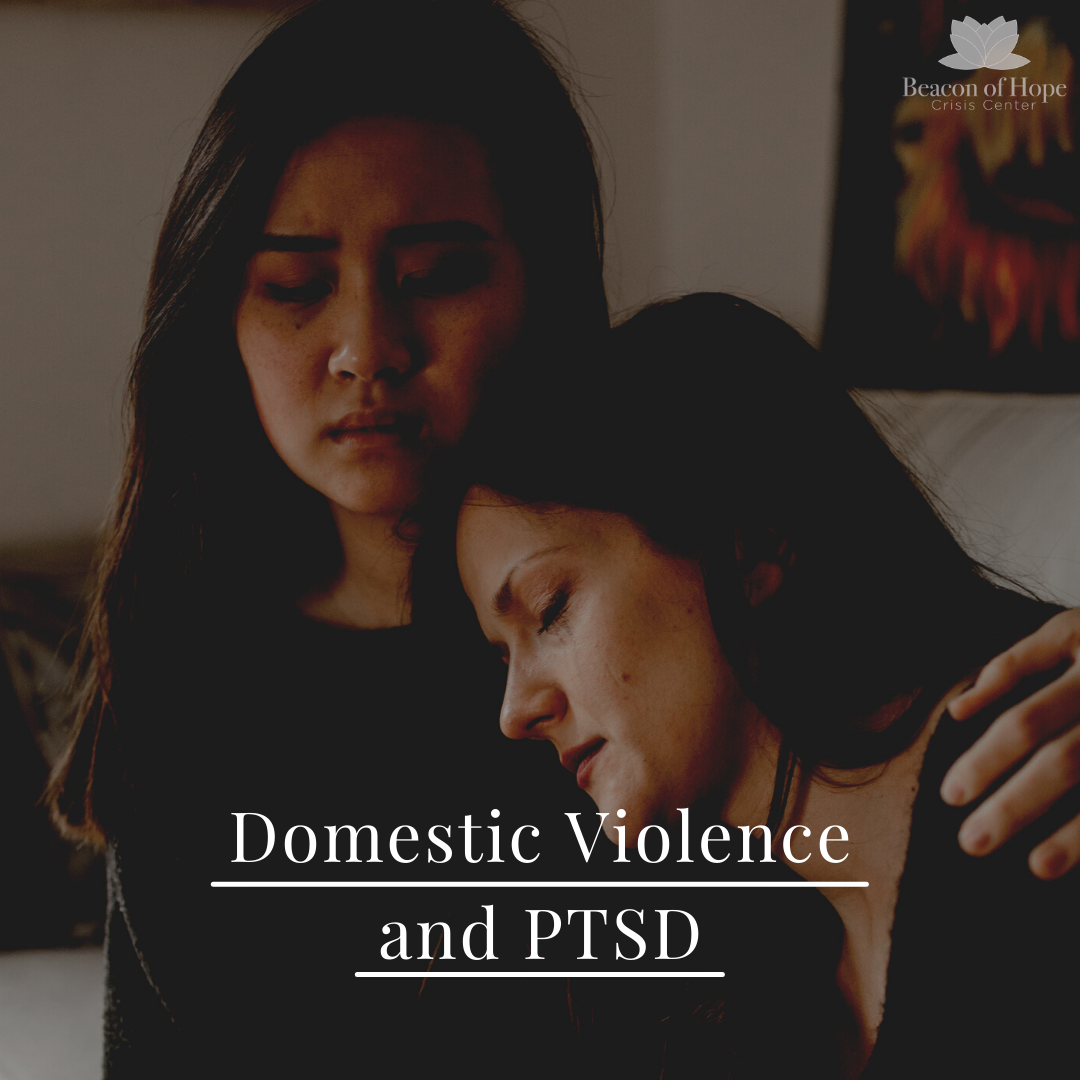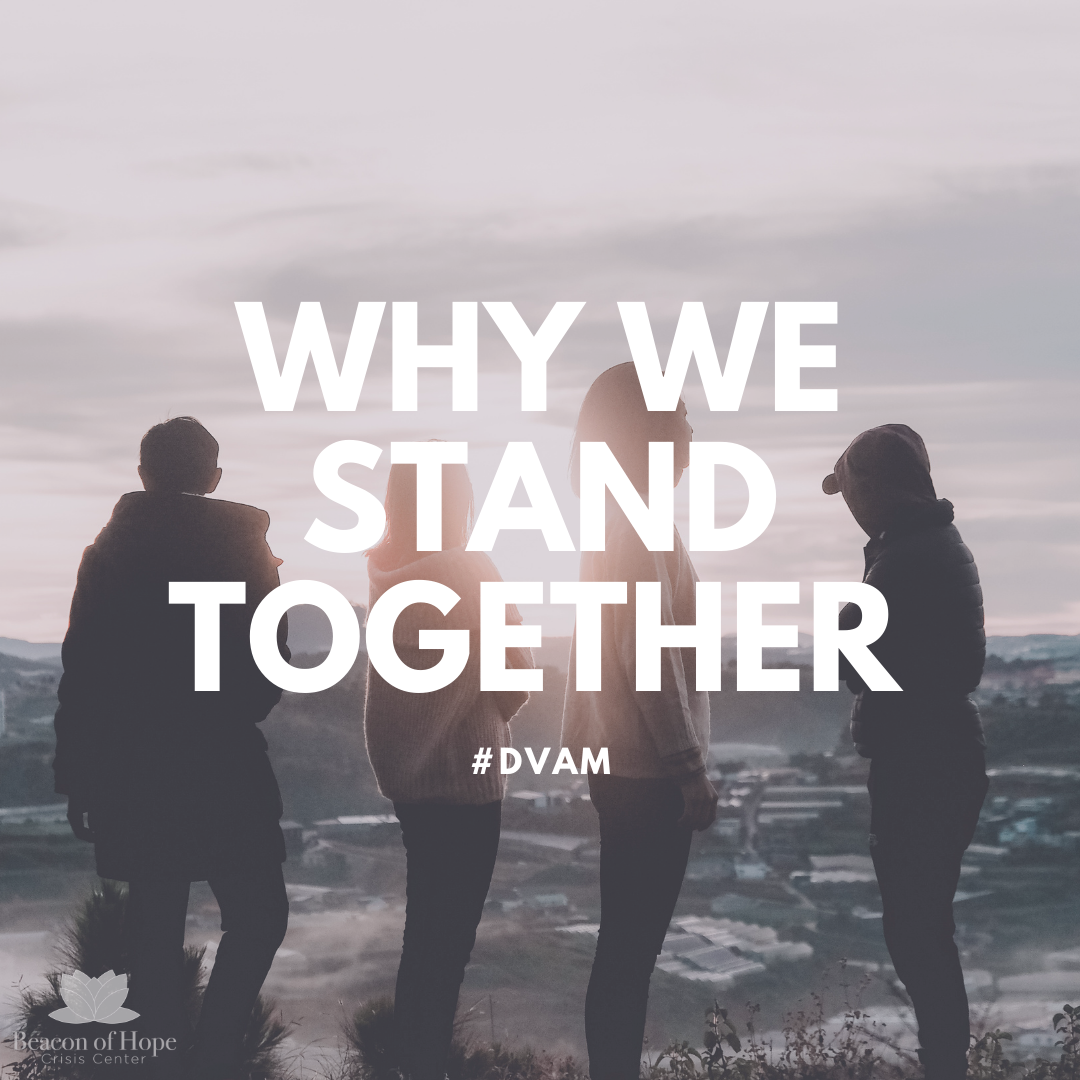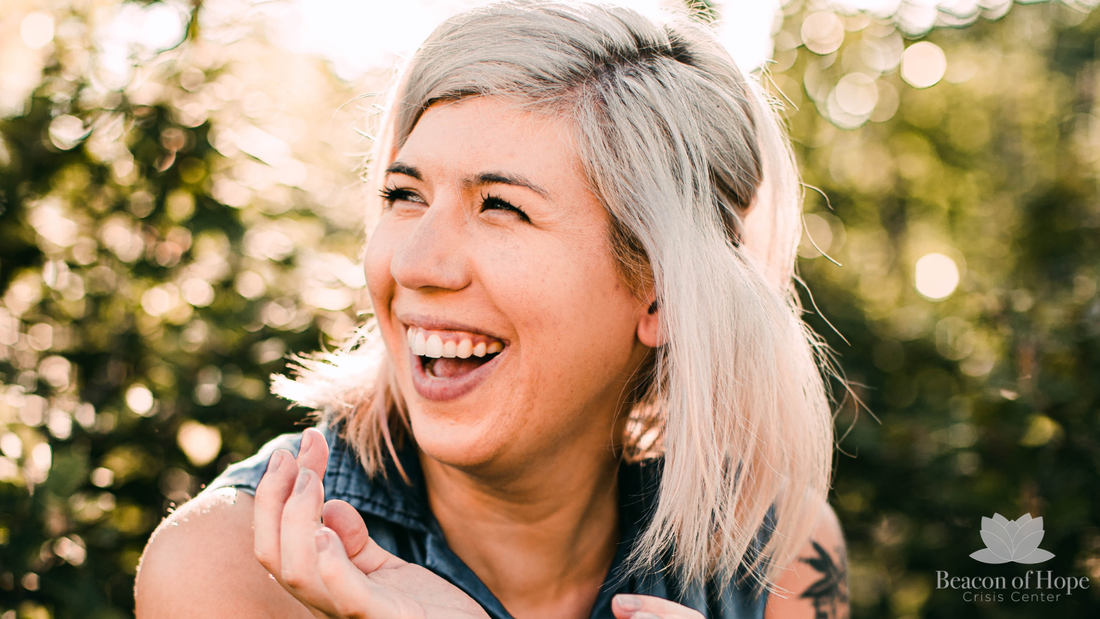|
By: Deni O'Brien Domestic violence itself is a threat to the safety of a victim, but some aggravating circumstances increase their risk of being greatly harmed or murdered. It's important to recognize these warning signs and educate victims on the threat this poses to them and the importance of fleeing. A couple of main indicators of a high lethality risk in abusive relationships are strangulation incidents and weapons in the home.
When a victim of domestic violence calls our crisis line for help, there are typically several things they are trying to solve at once. Often, they call about resources for shelter, long-term housing, employment, childcare, financial support, or filing for a protection order. Because a victim's health is often the last thing on their mind when fleeing and trying to tackle so many other things, we, as Victim Advocates, must take the time to address this with victims and assess for any health needs. When discussing the different types of abuse a victim has experienced, we listen carefully for any disclosure of strangulation or head injuries. Any history of strangulation puts a victim at higher risk of homicide at the hands of their abuser. Of women who experience intimate partner violence, 68% will experience near-fatal strangulation (Training Institute on Strangulation Prevention). The chance of homicide increases by 750% for victims who have experienced strangulation, compared to victims who have never been strangled (Training Institute on Strangulation Prevention). Strangulation means the obstruction of airflow and blood vessels in the neck, meaning loss of consciousness can happen within seconds, and death can occur in minutes. When a victim survives an incident of strangulation, they may experience damage to their throat tissue, memory loss, vision issues, psychosis, brain damage, and even death weeks after the incident due to respiratory complications or blood clots. Typically, victims and their loved ones are unaware of just how seriously strangulation should be taken and that their lives are at risk. Assessing if a victim has experienced strangulation from their abuser and educating them on the impacts can be a matter of life or death. A second thing Victim Advocates are on high alert for is if there are any weapons in the home. As Victim Advocates, we are not just asking if the abuser has threatened the victim with weapons. We want to know if the abuser even owns or has access to firearms. The presence of a gun in domestic violence situations increases the risk of homicide for women by 500%. More than half of women killed by gun violence are killed by family members or intimate partners (National Domestic Violence Hotline). Even after a victim has successfully fled abuse, people willing to commit homicide against their victims often will not be stopped by a protection order. Once we hear any mention of a weapon, safety planning is of utmost importance to protecting the lives of victims and their loved ones. A victim is not able to address something they are unaware of. The more knowledge they have, the better they can understand what this means for their health and safety. If you or somebody you know is experiencing domestic violence, we highly encourage you to reach out to our crisis line and connect with a Victim Advocate. We are here to educate victims, assist with their needs, and change the course of their lives. We want to see every victim we encounter become safe, healthy, and self-sufficient. By: Kaylee Kriese In the spirit of the cooler weather and the oncoming holiday season, we want to encourage everyone to practice some much-needed self-care. If you’re not feeling excited about self-care, this is for you. Oftentimes, the people who are opposed to the concept of self-care need it the most. We get it; you’re busy. Between the days getting shorter and your list of to-dos getting longer, we know that it’s all too easy not to schedule a time to take a moment and breathe. Below you will find some fall-themed self-care ideas just for you!
There are a million ways to practice self-care, especially in 2021; find what works for you. Some days, it will feel impossible to take even five minutes for yourself. Despite all this, keep pushing forward and working towards your goals. We know it’s hard to put yourself first but take the time to set some boundaries. Enjoy the coffee, put on a sweater, and maybe even do some deep breathing. We promise you’ll feel better for it. By: Kaylee Kriese Complex PTSD is a condition that survivors of abuse might experience as they heal and recover from trauma. It is defined by the National Domestic Violence Hotline as “layers of psychological, emotional, verbal or physical abuse [that] compound, never allowing the mind to catch a break to properly process and heal the trauma from one traumatic event before there is another.”[1] This often happens with domestic violence victims because, as we’ve seen time and time again, abuse is often a repeated offense.
Those who are actively experiencing complex PTSD may respond to triggers of abuse in various ways, from ignoring the problem to becoming irritable without knowing why. They may even experience dissociation, panic attacks, all-consuming flashbacks, nightmares, or hypervigilance.[1] Beacon of Hope Crisis Center has focused much of our attention on helping survivors address these issues. We offer counseling and referrals for mental health needs. Speaking with a trained professional can truly make a difference in the healing process. We also encourage caring for your physical and mental needs. Our blog explores a variety of ways to practice self-care. Be kind to yourself. Unlock your creativity. Accept and acknowledge your feelings. The list goes on. While these are critical steps one must take in healing, we know that when you hear the same thing said in the same way too much, it gets repetitive. It loses its meaning. So, this October, we want to remind anyone reading this that we know your story is unique to you alone, and no one can understand what you’ve been through better than you. Still, we are here to help you through any trauma you may be experiencing, especially as topics of domestic violence surface to the forefront of our minds on social media this month. We’ve said it time and time again: healing is not one-size-fits-all. Healing is an individualistic process that takes time and effort, and it doesn’t start with us; it starts with you. At Beacon of Hope Crisis Center, we work alongside you to create a personalized map to understanding and working through feelings of self-doubt, anger, resentment, hopelessness, and heartbreak. If you or a loved one are seeking help, take the first step and call our confidential crisis line at (317) 731-6140 today. If you are in immediate danger, please call 9-1-1. [1] https://www.thehotline.org/resources/breaking-free-from-ptsd/ By: Kaylee Kriese If you’ve been on social media lately, we are hopeful that you have seen plenty of posts about Domestic Violence Awareness Month. Perhaps you’ve been acquainted with domestic violence before. Many people have. In general, if you or a loved one haven’t experienced abuse in a relationship, you know someone who has.
There’s a reason you see #WeStandTogether on our social media so often. For us, it’s more than a hashtag. It continues to exceed beyond a trend or another social media bandwagon to hop onto. For survivors, abuse is incredibly isolating. It leaves them feeling separated from their loved ones and spiraling in guilt, fear, and self-hatred. One of the most common tactics of abusers is to perpetuate the “us vs. them” fallacy, and for a while, it may feel to the victims that their abusers are the only person they have for companionship. Even so, we know that in toxic relationships, this feeling never lasts. Victims of abuse are somehow always the ones left feeling powerless, wanting, and alone. When our advocates champion #WeStandTogether, it is because we never want survivors to feel alone. Our goal is that from this point on, you will forever know that you have a team offering support without judgement. With the dedication of the entire month to domestic violence awareness, we hope that this is especially apparent, not just from our advocates but from other nonprofits, groups, or individuals out there who stand with survivors. Today, on Purple Thursday, we wear purple, a color of peace, courage, survival, and honor, as one unified front.[1] We post because we know that only when we stand together can we all work to help survivors break free from the grip of domestic violence. With the help of our community, we will continue to save lives. Thank you to everyone who stands as an ally to survivors. [1]https://mmcenter.org/stay-informed/domestic-violence-awareness-month#:~:text=The%20color%20purple%20is%20a,end%20the%20cycle%20of%20violence. By: Cheyenne Taylor Robert Ingersoll, an American lawyer and writer, once said, “We rise by lifting others.” Today, we want to discuss the ways we can help uplift survivors of sexual assault. We can start by changing the way society speaks about survivors. Common myths about sexual assault are harmful to survivors and can prevent them from getting the help and justice they deserve. These myths include beliefs that survivors “got what they deserved” or that they were “asking for it.” These thoughts are communicated through questions like, “What were they wearing,” “What were they doing,” or “Why did they drink so much?”
The truth is these types of questions focus on the wrong person. When a stabbing occurs, we never turn to the stabbing victim and question what they were wearing to make themselves more at risk of getting stabbed. We know that it is not our place to question survivors, and there is no justification for causing this harm. However, when speaking about sexual assault survivors, we assume they are lying – even though less than 2% of people are reported to have lied about sexual assault1. We also focus on questioning the survivors instead of questioning those who sexually assault people. Survivors are shamed so much that many do not report their perpetrators and many perpetrators go free. In fact, only 5 out of every 1,000 perpetrators will end up in prison2. Survivors feel so much shame for being sexually assaulted, but we can work together to take away those feelings of guilt. Instead of questioning survivors about their actions and what they did to “deserve” trauma that nobody deserves, we can show support to these survivors. We can offer support by using phrases like “It took a lot of courage to speak about this,” “It’s not your fault,” or “You are not alone. I am here to help.” We can also continue to check-in with them and give them the time to grieve and heal from their experiences. We should also validate their decisions. Listen to them without judgment and encourage them to make the best decision for themselves and their health. Additionally, we can suggest local resources to help the survivor. Beacon of Hope Crisis Center offers free services like protective order filing, safety planning, employment and financial assistance, emotional support, referrals for housing, jobs, and much more. Our victim advocates are here to support you. Speak with a victim advocate by calling our confidential crisis line at (317) 731-6140. If you are in immediate danger, please call 9-1-1. By: Cheyenne Taylor Domestic violence can take away your strength, your independence, and your feelings of safety. Even after the abusive individual is out of your life, you might find yourself facing conflicting emotions that can harm your mental health. Survivors of trauma are three times more likely to become depressed and often face challenges with anxiety, panic attacks, triggers, etc.
The truth is leaving an abusive relationship does not automatically equate to happiness and health. There is as an adjustment period. Survivors have to learn how to navigate life without the abuse. They have to unlearn behaviors and become comfortable making all their own choices. They also have to come to terms with the fact that the relationship is over. Survivors often feel sadness or grief over the loss of the relationship and those are normal emotions to feel. Whether it be the companionship, the security of a romantic connection, or a simple bond built from trauma, ending an abusive relationship is not as cut and dry as many believe. Healing from past hurts can seem impossible, but many survivors have been there and come out on the other side happier and healthier. It is important that victims know they are not alone. Healing starts from within. Taking care of yourself, prioritizing your happiness and health, and learning to use your voice after being silenced by violence are all crucial steps in the healing process. We are here to help ALL survivors through the steps in any way possible. Leaving is the most challenging part. The rest is healing and becoming the healthier new you. There will be setbacks, and there will be triumphs. We are here to help you through your healing process or to start your healing process. Call our victim advocates at 317-731-6140 to discuss our services that can help you on your journey. These calls are confidential, and all our services are free. |
About this blog
This blog is about our domestic and sexual violence crisis center, Beacon of Hope. We hope you find it full of helpful information, motivation, creativity, serious facts and positivity. We hope that it will help you know what is happening in our center, in our community and with our events. We hope you follow our blog in support of our organization and our mission. Archives
October 2024
Categories
All
|
|
CAREER opportunities © 2024 Beacon of Hope Crisis Center Privacy Policy Accessibility Statement Training Portal Login |







 RSS Feed
RSS Feed